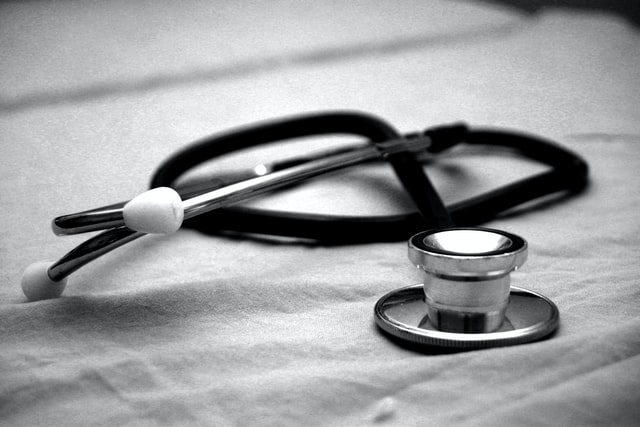
What are Gallstones and Gallstones Symptoms?
Gallstones Symptoms? What You Need To Know., Gallstones are tiny particles that originate inside the gallbladder. They are stone-like substances that result due to several factors such as our diets, our genetics, the weight of our bodies, and more.
To be very honest this is something which many people are seen enquiring about! They ask whether it will affect the life ahead. Well to be honest that is a very difficult question to answer as it depends a lot on how bad the stone is and whether one has undergone treatment for that or not. Do they also ask whether they cause symptoms such as abdominal pain or inflammation in the gallbladder or not? These are the things that most doctors & the person suffering from it can say.
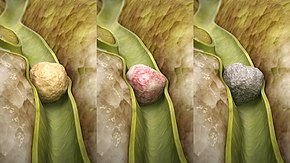
Two Gallstones Conditions
There are two conditions and they are if the gallstones cause pain and if they do not cause pain. If they cause pain then the usual treatment is taking it out of the gall bladder. Doctors say that the pain which originates in the abdomen due to these gallstones is referred to as binary pain. If one undergoes such attacks there is a good chance that those attacks will continue to give pain. So in such cases, they have to be taken out of the ball bladder, and after that, it is believed that those pains would probably never occur. This is one symptom; however, there are some other symptoms such as feeling a little sick or having minor indigestion in the belly. These symptoms are not as alarming as the first told one and there is a good chance that it might not even lead you to the operation table.
Another scenario:
Let’s take another scenario, suppose someone suffers from a binary attack but does not undergo an operation, then what happens? This is another question that doctors have reported to have been asked by their patients. Well, the situation may arise that that person might get a similar attack within one year from the first attack and there is a good chance that it might be a bit more painful compared to the first one. But as per some of the statistics, these are some of the conditions which may apply:
- Researchers have said that among people suffering from binary attacks only half of them are seen getting a second attack within 365 days.
- Some people are also seen having one or two binary attacks and then no attacks for many years.
- Also, interestingly about 1-2 of about 100 who suffer from binary attacks witnessed getting issues of inflammation within their gallbladders. Source.
This concept is a bit bamboozling. The occurrences of these symptoms are very dicey. These researchers however say that on recent analysis the pattern goes something like those who have frequent attacks will keep getting regular attacks but those who get rare attacks with continue getting attacks.
An interesting fact about Gallstones
Another thing that occurs is that sometimes it is seen that due to the gallstones if the gallbladder gets inflamed it can stick to the bowel. This can cause a hole in the bowel. Then what happens? Well, it is simple; one would have to undergo an operation to take out the gallbladder to sort out the issue. Such a situation is referred to as a fistula. From this another question that one may ask is by taking out the gallbladder can we live? The answer is yes because the liver will continue to make bile which if needed gets stored in the gallbladder. Thus these are the answers to the question-“What happens when you have gallstones?”
What are the symptoms of gallstones?
Gallstones classifications:
Gallstones are basically of two types, the first one being formed due to cholesterol. They are yellow-greenish tiny stone which is formed due to the continuous accumulation of the cholesterol components inside the gallbladder. Due to this accumulation, they become difficult to empty and as a result, they somewhat solidify and turn into tiny rock-like particles. These genres of gallstones are the most popular occurring gallstones found the people’s gallbladders.
On the other hand, the second genre of gallstones is pigment gallstones. They occur only in those patients who are sickened by medical conditions such as cirrhosis or sickle cell anemia. They are usually blackish-brown in color and are very rarely formulated.
What are Common Gallstones Symptoms

As per the symptoms, the most common form of gallstone symptoms is a pain in the upper right portion of the stomach right next to the ribs.
The occurrence of the pain may be as follows:
- The pain may suddenly start in the core of the upper stomach also referred to as the epigastric area and spread over to the right upper parts of the back or on the shoulder blade spot. It causes problems and even moving about does not make it vanish.
- There is certain pain that disallows one to take normal or deep breaths.
- The gallstone pain may last for 15 mins to 24 hours. Pain spans for about 1-5 hours are also very frequent.
- These pains also quite interestingly occur at night especially late into the night.
They can also occur after meals.
Many people ask “What are the symptoms of gallstones?” Well, these gallstones can cause serious issues such as vomiting and extreme belly aches. However, vomiting can sometimes be regarded as somewhat helpful as it sort of provides some relief from the pain in the stomach. Aches that may occur due to nausea, appetite loss, vomiting, feverish feelings, etc. mean that the gallbladder has been infected or inflamed. This occurrence in doctors’ language is referred to as acute cholecystitis. Apart from this, the other symptoms which indicate that the gallstone is blocked are as follows:
- Black or dark urine occurrence.
- Some feverish experiences are associated with a few chills.
- A yellowish complexion of the skin which includes the white portion of the eyes.
- Light textures stools.
The risk factors of experiencing Gallstones Symptoms
Some of the other factors which are associated with gallstone diseases are:-
- If some other family member is suffering from gallstones then there is a fair chance that one gets it from them.
- Some people who tend to possess high proportions of triglycerides, a common kind of blood fat are mainly prone to gallstones.
- Gallstones are frequent in women and aged folks.
Gallstones – what are the reasons behind them?
Gallstones are stones that are formed inside the gallbladder, the collection container of bile. Bile’s created by special cells inside the liver and is subsequently directed through minute ducts inside the liver to one’s gallbladder. The bile having entered the gallbladder water gets separated from it and the bile becomes concentrated inside the gallbladder.
Afterward, sometimes following a meal, the muscle forming the gallbladder’s wall powers the concentrated bile to the intestines. As this concentrated bile does a better job at the digestion of food, therefore it’s kept inside the gallbladder. Bile’s color generally ranges from yellow to brownish and this is the color that provides your bowel movements with color.
Gallstones generally form inside one’s gallbladder, but they’re able to form wherever the bile goes. Gallstones, which get formed inside the gallbladder, may also be sufficiently small to go out of the gallbladder in the company of the bile. Added places where gallstones can form consist of the hepatic ducts and cystic ducts, where the bile’s created.
Reasons behind gallstones
There’re several Reasons behind gallstones, but they come about generally in ladies, Hispanics, Native Americans, people aged more than 40, & people who’re obese. It is thought that a greater number of people having gallstone problems are hereditarily prone to gallstones. In a good number of such cases, gallstones are taken over from somebody related who’s suffering from gallstones. Other likely Reasons behind gallstones are:
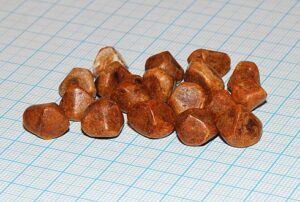
1. Cholesterol gallstones happen to be the most widespread gallstones in people who live in the US and Europe. Such gallstones are mainly formed by the buildup of cholesterol in the gallbladder. How many sorts of gallstones are created that cholesterol has to be liquefied inside the bile before being able to be transported via the intestines & digested?
The problem’s that cholesterol’s fat, which does not liquefy in water and as a result form stones. Added ways in which cholesterol gallstones are created is that there’s a swift cholesterol growth inside one’s gallbladder and the cholesterol hoards into stones.
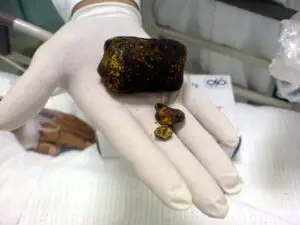
2. Pigment gallstones happen to be the second most widespread Reason behind gallstones. Pigment gallstones are typically caused by aged hemoglobin that could build up inside one’s gallbladder. Hemoglobin’s the component of the blood, which distributes oxygen to your tissues & organs.
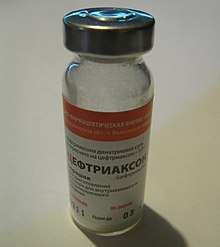
3. Ceftriaxone’s an antibiotic that can, though rarely, lead to gallstones. Ceftriaxone’s an antibiotic that eliminates the bile from one’s gallbladder and lets all sorts of foreign stuff like bilirubin and cholesterol be left alone. Since all such stuff mixes up with antibiotics, they create a gallstone i.e, calcium carbonate.
Some factors increase your possibility of getting gallstones. They are:
- Transplantation of Bone marrow / solid organ
- Diabetes
- The gallbladder not being able to empty bile appropriately (the possibility of this is more during pregnancy)
- Liver cirrhosis & biliary tract infections
- Medical conditions which cause an excessive number of red blood cells to be obliterated
- Swift loss of weight, loss from having an incredibly low-calorie diet, / following weight loss surgery
- Taking birth control pills
- Receiving food via a vein for a lengthy period (intravenous feedings)


Leave a Reply